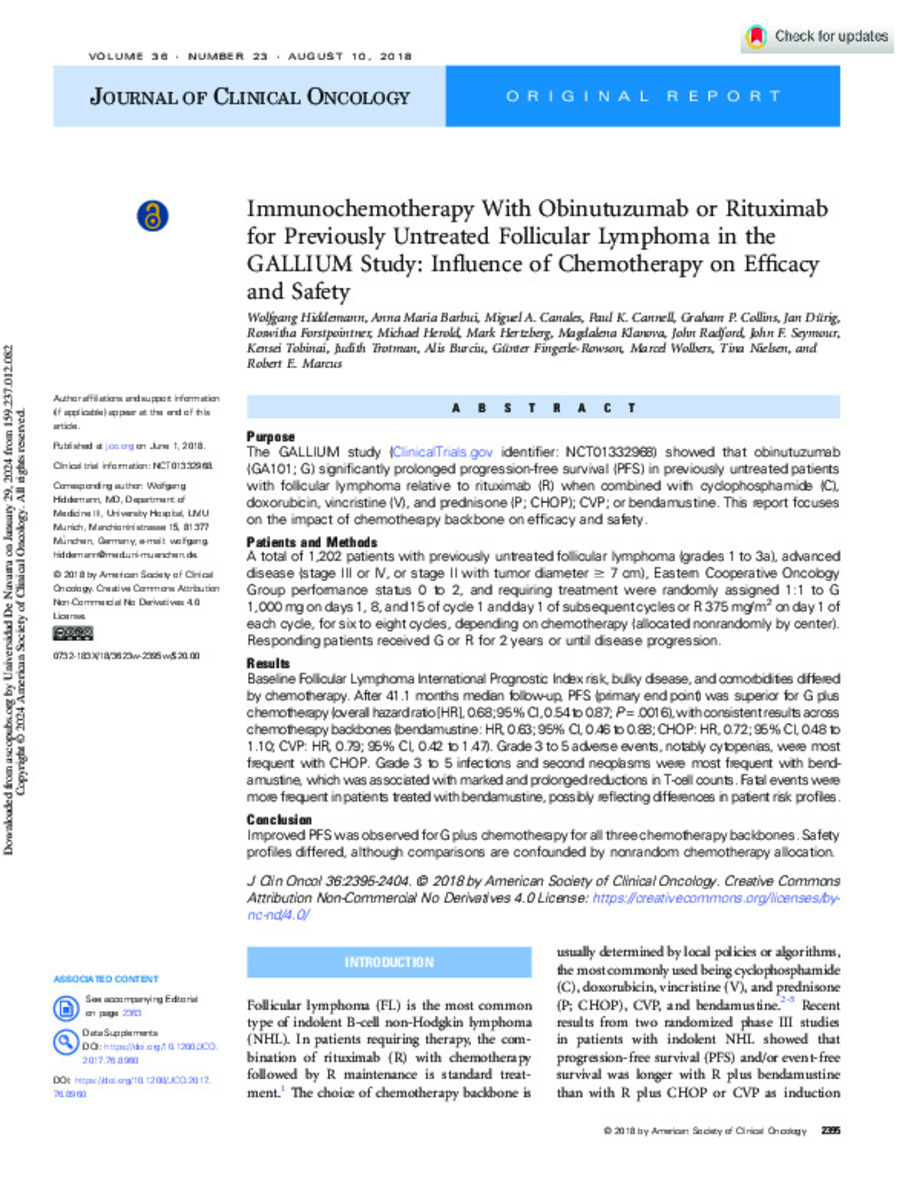Immunochemotherapy With Obinutuzumab or Rituximab for Previously Untreated Follicular Lymphoma in the GALLIUM Study: Influence of Chemotherapy on Efficacy and Safety
Keywords:
GALLIUM
Obinutuzumab
Progression-free survival
Follicular lymphoma
Cyclophosphamide
Doxorubicin
Vincristine
Prednisone
Bendamustine
Editorial note:
© 2018 by American Society of Clinical Oncology. Creative Commons Attribution Non-Commercial No Derivatives 4.0 License
Citation:
Canales-Albendea, M. A. (Miguel Ángel); Hiddemann, W. (Wolfgang); Barbui, A. M. (Anna Maria); et al. "Immunochemotherapy With Obinutuzumab or Rituximab for Previously Untreated Follicular Lymphoma in the GALLIUM Study: Influence of Chemotherapy on Efficacy and Safety". Journal of Clinical Oncology. 36 (23), 2018, 2395 - 2406
Statistics and impact
0 citas en

0 citas en

Items in Dadun are protected by copyright, with all rights reserved, unless otherwise indicated.







